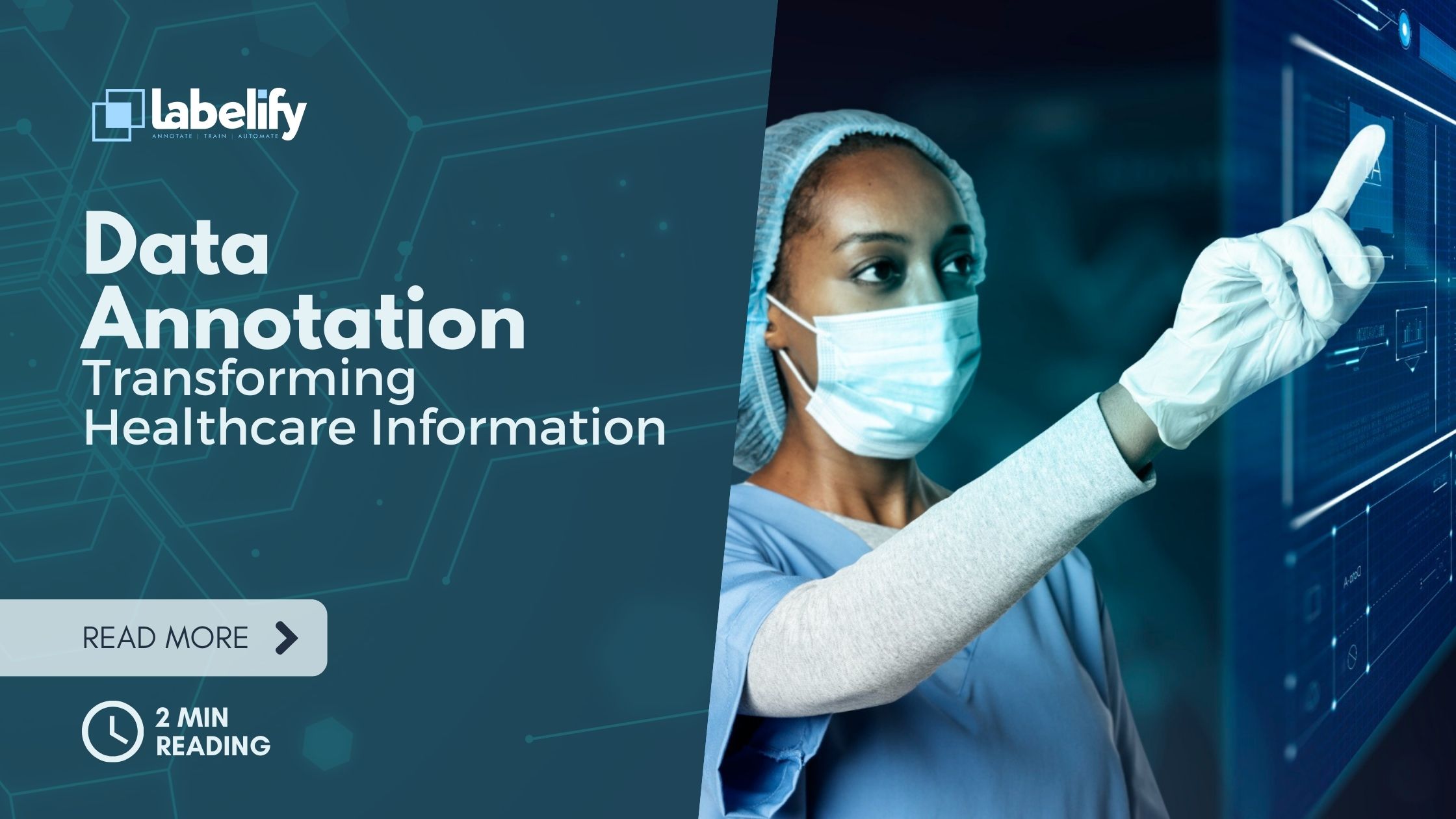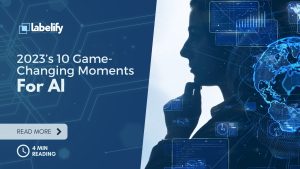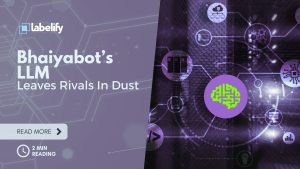Table of Contents
Data Annotation: Transforming Healthcare Information
What would you say if we said that when you next took photos, your smartphone could predict that you’re likely to get acne within the next few days? It sounds intriguing, doesn’t it? That’s exactly where we’re all headed to.
The world of technology is full of possibilities. With our innovations, ideas and ambitions we are advancing as a nation. This is particularly relevant to the advancement of AI in healthcare in which many of the most threatening problems are being dealt with and solved with the aid of technology.
We are currently close to developing machine learning models that accurately identify the onset of hereditary disorders and the moment the tumor will become cancerous. We are developing prototypes for robotic surgeons and VR-enabled training facilities for doctors. In the operating levels we have improved patient and bed management, remote care, remote medication dispensing and much more, as well as automated numerous redundant tasks using AI-powered systems.
While we keep thinking of ways to improve the way we provide healthcare, let’s look at and learn about the most important aspects in the development in healthcare, and also how the use of technology specifically the field of data science, and it’s wings can aid in this incredible expansion.
This article is devoted to highlighting the importance of data for the development of healthcare modules and systems and modules, some of the most prominent usage cases and the difficulties that result from this process.
How important is Data in Healthcare AI
Before we get to comprehend certain of the most intricate usage cases and applications of AI Let’s be aware that the typical fitness and healthcare applications you use on your smartphone run on AI modules. They’ve gone through years of instruction to analyze, prescribe and infer your data and translate it into information.
The significance Of Data In Healthcare Aid could be an app like Health that allows you to get advice from a doctor or schedule appointments with them, or an app that collects data of possible health problems according to your physical and mental health, AI is integrated into every health application available currently.
Increase this requirement and you’ll be dealing with advanced systems which require data from multiple sources, including computer vision and electronic health records and much more, to accomplish difficult tasks. As you may recall, the advances in oncology that we discussed earlier? These solutions require huge quantities of context-related data to yield exact results. In order to achieve this, annotation experts and experts must gather information from reports and scans like X-Rays MRIs, CT scans, and more . They then note each and every detail they observe on them.
Healthcare professionals need to be able to identify various issues and conditions and classify them in order for machines to be able to recognize them and produce more precise results. Therefore, all outcomes of diagnosis, treatments, and plans come from information and the exact process of processing it.
With data at the center of health care, let’s recognize that data is pave the way to a healthier tomorrow.
AI Utilization of Cases in Healthcare
While we talk about the advancements in surgical techniques and instruments, today’s AI systems determine whether or not surgery is necessary at all. With the careful processing of data, AI systems can create situations and inform users of whether problems can be resolved with medications and lifestyle modifications.
AI can also help us to diagnose viral diseases using the sequencing of genomic pathogens as well as profiling.
Assistants and virtual nurses are being developed to assist with the care of patients and to assist in the recovery process. In times of pandemics, where the number of patients is high, virtual nurses can aid organizations in reducing operating costs and provide the medical care that patients need. The virtual nurses will be equipped to perform all of the basic tasks that humans are taught to perform.
Many autoimmune and neurological diseases that are not curable or reversed are predicted by using AI as well as machine-learning models. Parkinson’s disease, dementia, Alzheimer’s and others could be eliminated by this method.
Customized treatment plans and medications are also feasible using AI as well as access to health information in electronic format. Through knowing the medical history, allergies, chemical compatibility and many more, the most effective medication could be suggested by computers.
The development of new drugs could be expedited through simulated clinical trials, too.
The challenges involved in the development of AI Solutions for Healthcare
The challenges involved in developing AI Solutions for Healthcare. Regardless of what field AI is being implemented in, there are some issues that remain prevalent and are universal. This holds true in relation to healthcare, too. To give you an overview, here are a few of the most frequent issues that hinder AI advances in healthcare:
The creation of uniform healthcare data is a major challenge because machine learning models rely upon the existence of huge volumes of data to process inferences and produce results.
The industry of healthcare is bound by various laws, compliances and protocols to ensure confidentiality and privacy standards. Data interoperability is necessary and however, it can be a hassle due to protocols that govern an equitable sharing of information between the various stakeholders. Companies must take extra steps to safeguard the privacy of their users and patients by de-identifying their data.
The availability of healthcare-related small and medium-sized enterprises is another major issue. Data annotation is likely to be the most crucial moment that will determine the ultimate outcome. Since healthcare is a specialization wing, information from scans and reports have to be analyzed by health experts. Finding them is a major problem.
That’s the basic understanding you must have to be aware of medical technology and the AI-specific applications. As we speak, lots of advances are being made to address some of the issues we have discussed. More innovative use cases and problems are also appearing simultaneously. The most important thing to remember here remains that the data is going to continue to impact the outcomes of healthcare. If you’re working on your own AI technology, then we suggest using data provided by experts at Labelify.
The impact it has is unmatched.




